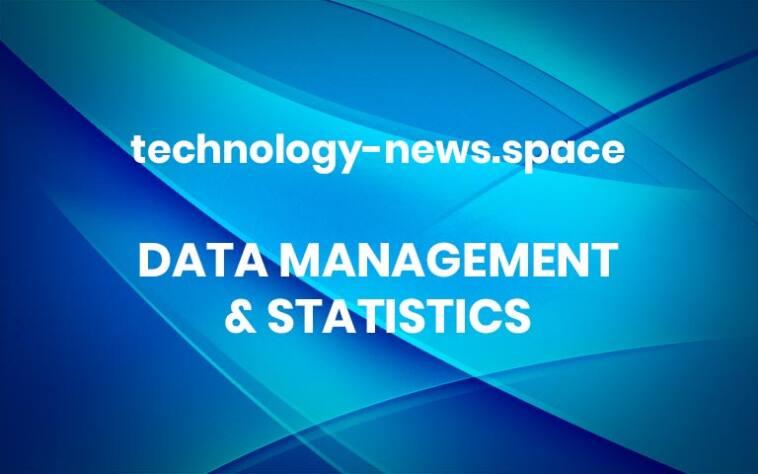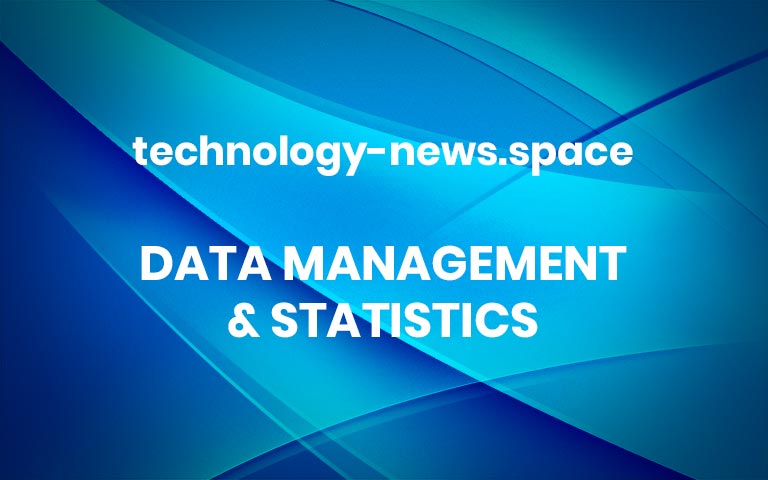Rewarding excellence in open data
The second annual MIT Prize for Open Data, which included a $2,500 cash prize, was recently awarded to 10 individual and group research projects. Presented jointly by the School of Science and the MIT Libraries, the prize highlights the value of open data — research data that is openly accessible and reusable — at the Institute. The prize winners and 12 honorable mention recipients were honored at the Open Data @ MIT event held Oct. 24 at Hayden Library.
Conceived by Chris Bourg, director of MIT Libraries, and Rebecca Saxe, associate dean of the School of Science and the John W. Jarve (1978) Professor of Brain and Cognitive Sciences, the prize program was launched in 2022. It recognizes MIT-affiliated researchers who use or share open data, create infrastructure for open data sharing, or theorize about open data. Nominations were solicited from across the Institute, with a focus on trainees: undergraduate and graduate students, postdocs, and research staff.
“The prize is explicitly aimed at early-career researchers,” says Bourg. “Supporting and encouraging the next generation of researchers will help ensure that the future of scholarship is characterized by a norm of open sharing.”
The 2023 awards were presented at a celebratory event held during International Open Access Week. Winners gave five-minute presentations on their projects and the role that open data plays in their research. The program also included remarks from Bourg and Anne White, School of Engineering Distinguished Professor of Engineering, vice provost, and associate vice president for research administration. White reflected on the ways in which MIT has demonstrated its values with the open sharing of research and scholarship and acknowledged the efforts of the honorees and advocates gathered at the event: “Thank you for the active role you’re all playing in building a culture of openness in research,” she said. “It benefits us all.”
Winners were chosen from more than 80 nominees, representing all five MIT schools, the MIT Schwarzman College of Computing, and several research centers across the Institute. A committee composed of faculty, staff, and graduate students made the selections:
Hammaad Adam, graduate student in the Institute for Data, Systems, and Society, accepted on behalf of the team behind Organ Retrieval and Collection of Health Information for Donation (ORCHID), the first ever multi-center dataset dedicated to the organ procurement process. ORCHID provides the first opportunity to quantitatively analyze organ procurement organization decisions and identify operational inefficiencies.
Adam Atanas, postdoc in the Department of Brain and Cognitive Sciences (BCS), and Jungsoo Kim, graduate student in BCS, created WormWideWeb.org. The site, allowing researchers to easily browse and download C. elegans whole-brain datasets, will be useful to C. elegans neuroscientists and theoretical/computational neuroscientists.
Paul Berube, research scientist in the Department of Civil and Environmental Engineering, and Steven Biller, assistant professor of biological sciences at Wellesley College, won for “Unlocking Marine Microbiomes with Open Data.” Open data of genomes and metagenomes for marine ecosystems, with a focus on cyanobacteria, leverage the power of contemporaneous data from GEOTRACES and other long-standing ocean time-series programs to provide underlying information to answer questions about marine ecosystem function.
Jack Cavanagh, Sarah Kopper, and Diana Horvath of the Abdul Latif Jameel Poverty Action Lab (J-PAL) were recognized for J-PAL’s Data Publication Infrastructure, which includes a trusted repository of open-access datasets, a dedicated team of data curators, and coding tools and training materials to help other teams publish data in an efficient and ethical manner.
Jerome Patrick Cruz, graduate student in the Department of Political Science, won for OpenAudit, leveraging advances in natural language processing and machine learning to make data in public audit reports more usable for academics and policy researchers, as well as governance practitioners, watchdogs, and reformers. This work was done in collaboration with colleagues at Ateneo de Manila University in the Philippines.
Undergraduate student Daniel Kurlander created a tool for planetary scientists to rapidly access and filter images of the comet 67P/Churyumov-Gerasimenko. The web-based tool enables searches by location and other properties, does not require a time-intensive download of a massive dataset, allows analysis of the data independent of the speed of one’s computer, and does not require installation of a complex set of programs.
Halie Olson, postdoc in BCS, was recognized for sharing data from a functional magnetic resonance imaging (fMRI) study on language processing. The study used video clips from “Sesame Street” in which researchers manipulated the comprehensibility of the speech stream, allowing them to isolate a “language response” in the brain.
Thomas González Roberts, graduate student in the Department of Aeronautics and Astronautics, won for the International Telecommunication Union Compliance Assessment Monitor. This tool combats the heritage of secrecy in outer space operations by creating human- and machine-readable datasets that succinctly describe the international agreements that govern satellite operations.
Melissa Kline Struhl, research scientist in BCS, was recognized for Children Helping Science, a free, open-source platform for remote studies with babies and children that makes it possible for researchers at more than 100 institutions to conduct reproducible studies.
JS Tan, graduate student in the Department of Urban Studies and Planning, developed the Collective Action in Tech Archive in collaboration with Nataliya Nedzhvetskaya of the University of California at Berkeley. It is an open database of all publicly recorded collective actions taken by workers in the global tech industry.
A complete list of winning projects and honorable mentions, including links to the research data, is available on the MIT Libraries website. More



